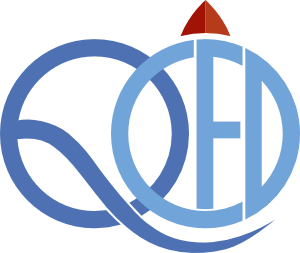Ho Nam Nguyen, Felix Motzoi, Mekena Metcalf, K. Birgitta Whaley, Marin Bukov, Markus Schmitt.
The utility of a quantum computer depends heavily on the ability to reliably perform accurate quantum logic operations. For finding optimal control solutions, it is of particular interest to explore model-free approaches, since their quality is not constrained by the limited accuracy of theoretical models for the quantum processor – in contrast to many established gate implementation strategies. In this work, we utilize a continuous-control reinforcement learning algorithm to design entangling two-qubit gates for superconducting qubits; specifically, our agent constructs cross-resonance and CNOT gates without any prior information about the physical system. Using a simulated environment of fixed-frequency, fixed-coupling transmon qubits, we demonstrate the capability to generate novel pulse sequences that outperform the standard cross-resonance gates in both fidelity and gate duration, while maintaining a comparable susceptibility to stochastic unitary noise. We further showcase an augmentation in training and input information that allows our agent to adapt its pulse design abilities to drifting hardware characteristics, importantly with little to no additional optimization. Our results exhibit clearly the advantages of unbiased adaptive-feedback learning-based optimization methods for transmon gate design.
Cite as BibTex
@article{Nam_Nguyen_2024,
title={Reinforcement learning pulses for transmon qubit entangling gates},
volume={5},
ISSN={2632-2153},
url={http://dx.doi.org/10.1088/2632-2153/ad4f4d},
DOI={10.1088/2632-2153/ad4f4d},
number={2},
journal={Machine Learning: Science and Technology},
publisher={IOP Publishing},
author={Nam Nguyen, Ho and Motzoi, Felix and Metcalf, Mekena and Birgitta Whaley, K and Bukov, Marin and Schmitt, Markus},
year={2024},
month=jun, pages={025066} }
